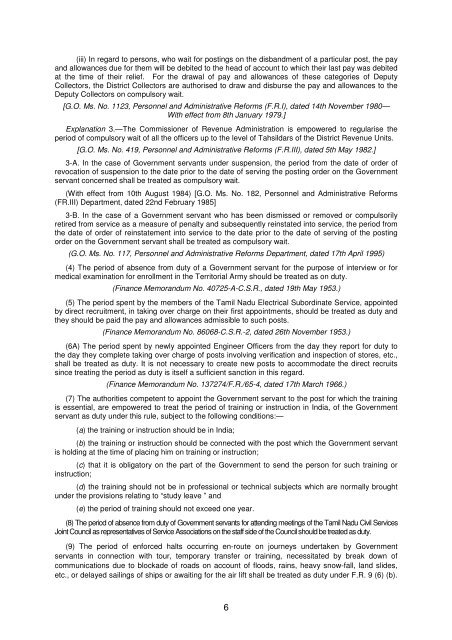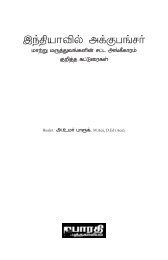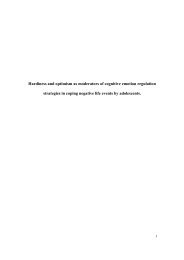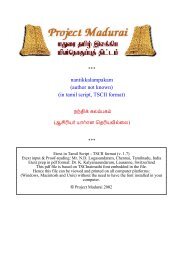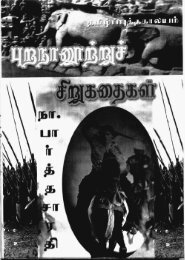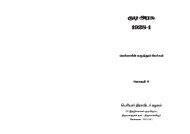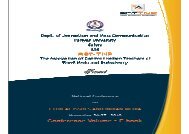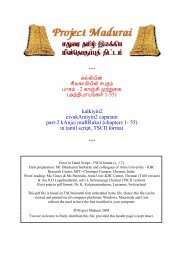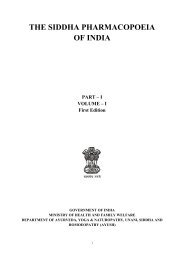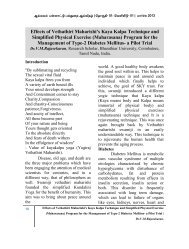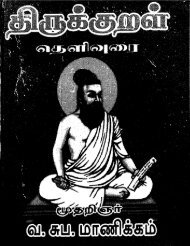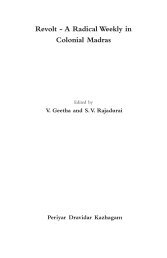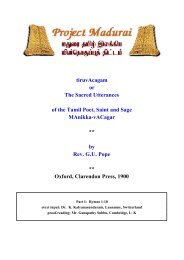THE FUNDAMENTAL RULES OF THE TAMIL NADU GOVERNMENT
THE FUNDAMENTAL RULES OF THE TAMIL NADU GOVERNMENT
THE FUNDAMENTAL RULES OF THE TAMIL NADU GOVERNMENT
- No tags were found...
You also want an ePaper? Increase the reach of your titles
YUMPU automatically turns print PDFs into web optimized ePapers that Google loves.
(iii) In regard to persons, who wait for postings on the disbandment of a particular post, the payand allowances due for them will be debited to the head of account to which their last pay was debitedat the time of their relief. For the drawal of pay and allowances of these categories of DeputyCollectors, the District Collectors are authorised to draw and disburse the pay and allowances to theDeputy Collectors on compulsory wait.[G.O. Ms. No. 1123, Personnel and Administrative Reforms (F.R.I), dated 14th November 1980—With effect from 8th January 1979.]Explanation 3.—The Commissioner of Revenue Administration is empowered to regularise theperiod of compulsory wait of all the officers up to the level of Tahsildars of the District Revenue Units.[G.O. Ms. No. 419, Personnel and Administrative Reforms (F.R.III), dated 5th May 1982.]3-A. In the case of Government servants under suspension, the period from the date of order ofrevocation of suspension to the date prior to the date of serving the posting order on the Governmentservant concerned shall be treated as compulsory wait.(With effect from 10th August 1984) [G.O. Ms. No. 182, Personnel and Administrative Reforms(FR.III) Department, dated 22nd February 1985]3-B. In the case of a Government servant who has been dismissed or removed or compulsorilyretired from service as a measure of penalty and subsequently reinstated into service, the period fromthe date of order of reinstatement into service to the date prior to the date of serving of the postingorder on the Government servant shall be treated as compulsory wait.(G.O. Ms. No. 117, Personnel and Administrative Reforms Department, dated 17th April 1995)(4) The period of absence from duty of a Government servant for the purpose of interview or formedical examination for enrollment in the Territorial Army should be treated as on duty.(Finance Memorandum No. 40725-A-C.S.R., dated 19th May 1953.)(5) The period spent by the members of the Tamil Nadu Electrical Subordinate Service, appointedby direct recruitment, in taking over charge on their first appointments, should be treated as duty andthey should be paid the pay and allowances admissible to such posts.(Finance Memorandum No. 86068-C.S.R.-2, dated 26th November 1953.)(6A) The period spent by newly appointed Engineer Officers from the day they report for duty tothe day they complete taking over charge of posts involving verification and inspection of stores, etc.,shall be treated as duty. It is not necessary to create new posts to accommodate the direct recruitssince treating the period as duty is itself a sufficient sanction in this regard.(Finance Memorandum No. 137274/F.R./65-4, dated 17th March 1966.)(7) The authorities competent to appoint the Government servant to the post for which the trainingis essential, are empowered to treat the period of training or instruction in India, of the Governmentservant as duty under this rule, subject to the following conditions:—(a) the training or instruction should be in India;(b) the training or instruction should be connected with the post which the Government servantis holding at the time of placing him on training or instruction;(c) that it is obligatory on the part of the Government to send the person for such training orinstruction;(d) the training should not be in professional or technical subjects which are normally broughtunder the provisions relating to “study leave ” and(e) the period of training should not exceed one year.(8) The period of absence from duty of Government servants for attending meetings of the Tamil Nadu Civil ServicesJoint Council as representatives of Service Associations on the staff side of the Council should be treated as duty.(9) The period of enforced halts occurring en-route on journeys undertaken by Governmentservants in connection with tour, temporary transfer or training, necessitated by break down ofcommunications due to blockade of roads on account of floods, rains, heavy snow-fall, land slides,etc., or delayed sailings of ships or awaiting for the air lift shall be treated as duty under F.R. 9 (6) (b).6


